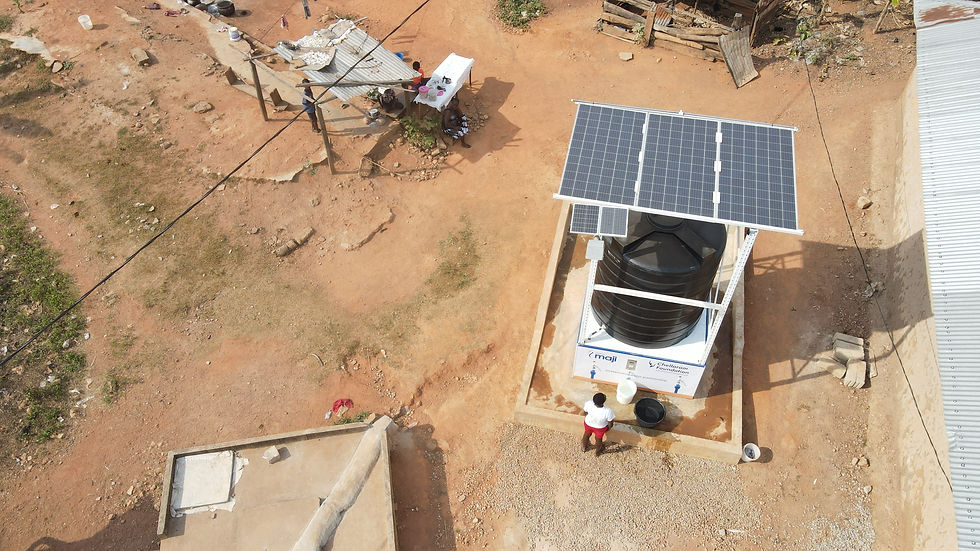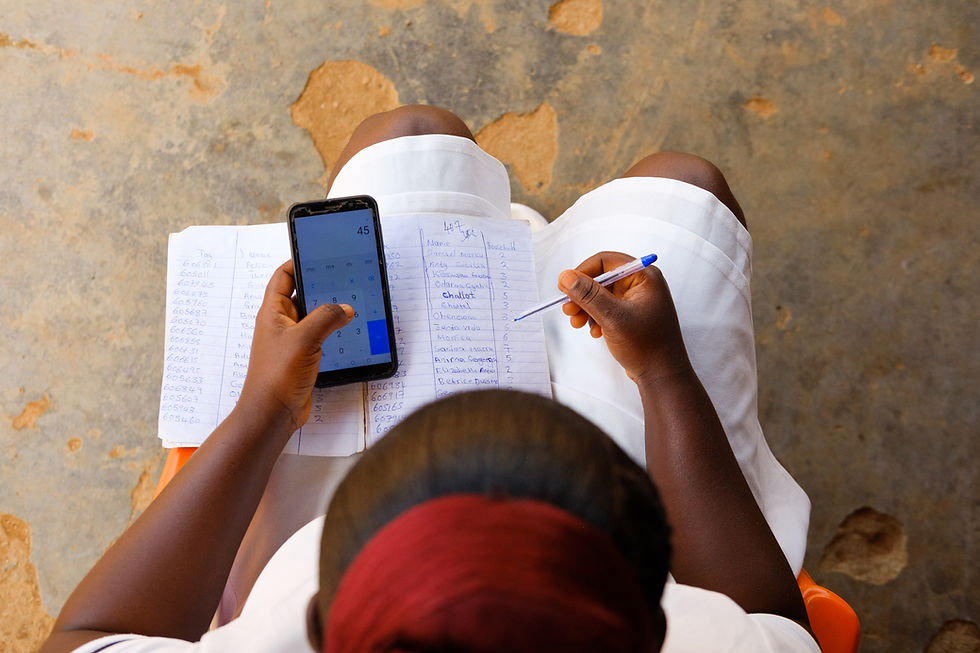World Water Week: Water for Climate Action
- projectmaji
- Aug 29, 2025
- 3 min read
Are efforts to fight climate change at odds with the pursuit of equitable development? Can environmental action be reconciled with the broader goals of the Sustainable Development Agenda?
These are the questions at the heart of the 2025 World Water Week theme: "Water for Climate Action". Project Maji was proud to participate in this global conversation, which focused on the vital role of water in both mitigating climate change and ensuring inclusive, sustainable development. As a safe water enterprise committed to sustainability, we are compelled to contribute to this dialogue - sharing insights from our experience delivering clean water access in ways that not only reduce emissions but also promote equity, health, and resilience in the communities we serve.

Water at the Heart of Climate Solutions
Climate change is a water crisis. Rising temperatures and shifting weather patterns are intensifying droughts, floods and water scarcity, placing enormous strain on already vulnerable communities. As rainfall becomes less predictable and traditional sources dry up, access to safe water is increasingly threatened. We have witnessed first-hand how last-mile communities often bear the brunt of global warming, particularly in arid and semi-arid regions across Sub-Saharan Africa. Sweltering heat, scare shade due to shrinking vegetation, and parched earth create increasingly unliveable conditions.
Yet water is not only a victim of climate change; it is also a powerful tool for resilience. Safe and reliable water access enables communities to maintain hygiene during disease outbreaks, irrigate crops during dry seasons, and reduce the time spent—especially by women and children—fetching water, freeing them to pursue education or income-generating activities. In this way, water access strengthens health systems, stabilises food production, and supports livelihoods, making it a critical pillar of any meaningful climate adaptation strategy. Because climate shocks are often felt first and most severely through disrupted water systems, integrating water access into climate strategies is not optional. it is essential to protecting lives, reducing displacement, and helping communities withstand and recover from climate extremes.
Project Maji’s Sustainable Model
At Project Maji, sustainability is central to how we deliver water access. For us, sustainable means more than system longevity—it reflects both a financially viable model and a deep commitment to environmental responsibility.

All our water solutions are solar-powered, harnessing the abundant sunshine across the countries we serve. Renewable energy drives not only our water pumps but also the lights that illuminate our kiosks after sunset and the integrated digital payment system. This fully solar infrastructure ensures our operations remain low-carbon, eliminating reliance on fossil fuels entirely.
Crucially, sustainability also means long-term functionality. We maintain open lines of communication with local representatives and conduct annual technical check-ups to ensure our systems continue performing reliably. By prioritising maintenance over replacement, we reduce material waste and avoid the environmental costs of repeated construction. In short, we build to last—responsibly, efficiently, and with future generations in mind.

Equity at the Heart of Climate Action
The 2025 World Water Week theme—Water for Climate Action—calls on us to recognise water as both a pathway to climate resilience and a lever for social equity. At Project Maji, we see this in practice every day. Safe water access reduces the burden on women and children, supports education, and strengthens livelihoods—all while being delivered through low-carbon, solar-powered systems. Our work shows that environmental sustainability and inclusive development are not competing goals—they are mutually reinforcing. As we look ahead, we remain committed to advancing water solutions that respond to the climate crisis while building a more just and equitable future for all.



